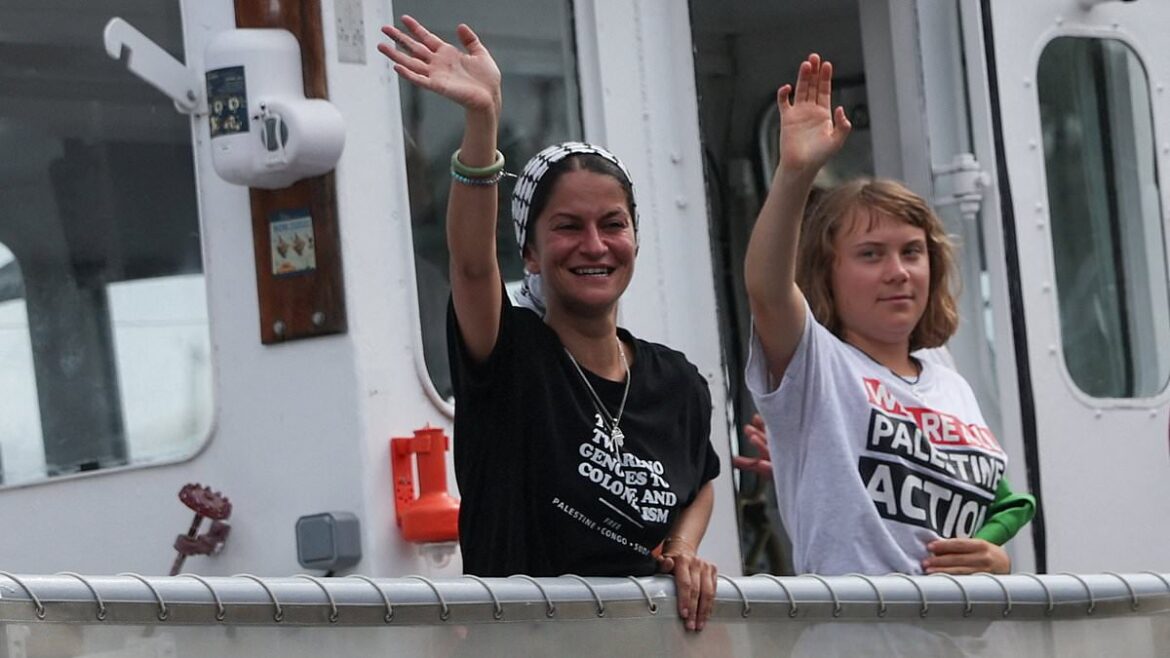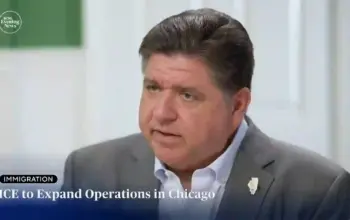The world’s most famous climate activist is back on the high seas—this time taking on one of the most politically charged conflicts in the world.
Greta Thunberg, 22, has set sail once again in a Gaza-bound flotilla, determined to deliver aid and challenge Israel’s long-standing blockade.
But her mission is already drawing fierce pushback from Israeli officials.
A Risky Voyage from Barcelona
On Saturday, Thunberg joined activists, including Game of Thrones actor Liam Cunningham and former Barcelona mayor Ada Colau, to launch the Global Sumud Flotilla from the port of Barcelona.
Their goal: to deliver aid to Gaza and open what they call a “people’s humanitarian corridor” for civilians trapped by famine and war.
This isn’t Thunberg’s first attempt. Back in June, her first flotilla was intercepted in international waters by Israeli forces.
She and 11 other passengers were detained, given the choice between deportation or arrest.
Thunberg ultimately chose deportation, along with three others.
Israel’s Harsh Response Plan
But this time, the stakes may be even higher. According to Israeli media reports, National Security Minister Itamar Ben-Gvir is preparing a plan to treat the activists as if they were “terror-level” detainees.
That would mean locking them up in maximum-security detention centers—Ktzi’ot and Damon—alongside women convicted of terrorism-related offenses.
The plan doesn’t stop there. Israel is also considering seizing dozens of flotilla vessels and repurposing them as part of a new maritime force for police operations.
Sources close to Ben-Gvir told Israel Hayom that activists would “regret ever coming” after experiencing weeks in such facilities.
A Movement Growing Across the Mediterranean
The Barcelona flotilla is only the start. Dozens more ships are expected to set sail on September 4 from Tunisia and other Mediterranean ports, hoping to converge on Gaza in a large-scale coordinated effort.
Thunberg says over 26,000 people have signed up to support the movement.
Speaking before departure, she told Iranian Press TV that governments had failed to uphold international law and prevent war crimes, leaving ordinary citizens to step in. “This project is part of a global uprising of people standing up… when our governments fail to step up, the people will take their place.”
Accusations of Antisemitism Addressed
Thunberg has faced accusations of antisemitism for her stance, but she pushed back in a weekend interview with Sky News.
“It is not antisemitic to say that we should not be bombing people, that one should not be living in occupation, that everyone should have the right to live in freedom and dignity, no matter who you are.”
A Blockade That Has Lasted for Years
Israel has enforced a naval blockade on Gaza since 2007, intercepting ships attempting to break through.
In one of the most infamous incidents in 2010, Israeli special forces raided a flotilla, killing eight Turkish activists and an American-Turkish teenager.
The deadly confrontation drew international outrage, but the blockade has remained firmly in place.
Greta’s Fears Beyond the Ocean
Despite the risks, Thunberg says what terrifies her most isn’t the possibility of another interception at sea—but the silence of the international community.
“I’m terrified to see that we seem to have lost all the humanity that we have… that people can just sit and watch the genocide unfold.”
Israel’s Firm Warning
The Israel Defense Forces (IDF) released a statement underscoring that the blockade remains non-negotiable.
“The IDF enforces the security naval blockade on the Gaza Strip and is prepared for a wide range of scenarios, which it will act upon in accordance with the directives of the political echelon.”
With activists gearing up for yet another attempt, and Israel signaling it will meet them head-on, the confrontation at sea is set to intensify.
Whether Thunberg’s flotilla reaches Gaza or is stopped once again, the journey is already sparking global debate.



